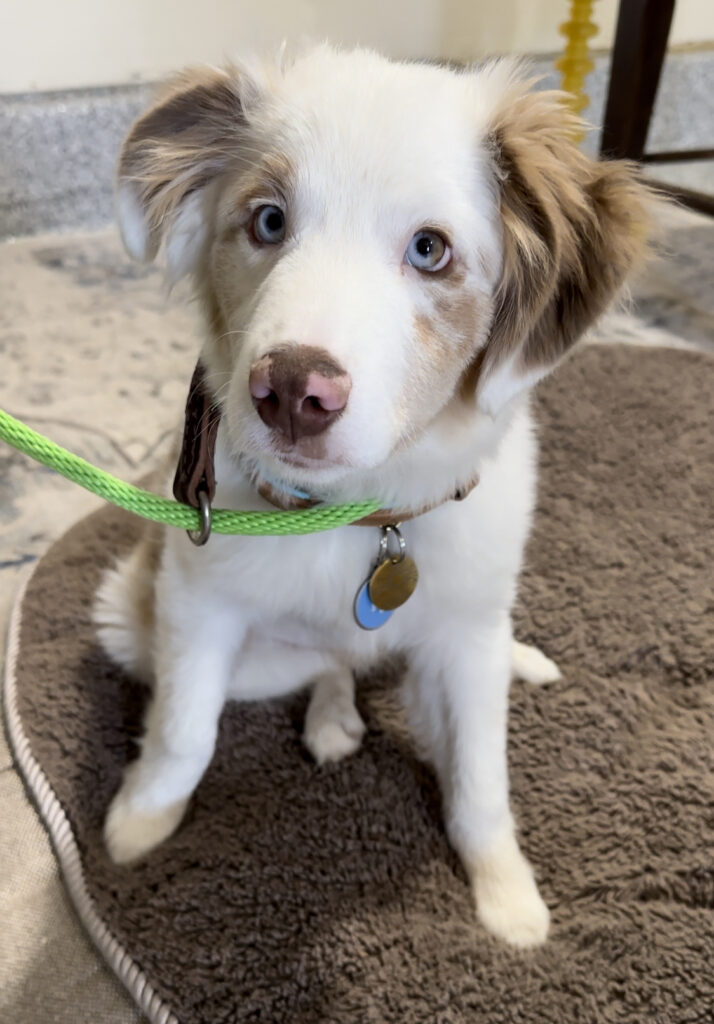What You Really Need for a New Puppy (And What You Don’t)
From our Puppy Training Principles Podcast Episode 62 New Puppy Essentials
Waiting on a baby… and thinking about puppies. That’s where we, Jason and Lorelei from Cornerstone Dog Training, found ourselves in June of 2022—caught in the limbo of waiting for our eighth child to arrive, reflecting on how different it felt compared to our first baby.
And naturally, that got us thinking about puppies.
Whether you’re a first-time puppy owner or it’s just been a while, bringing a new dog home comes with its own version of “nesting.” You start wondering: Do I have everything I need? Am I ready? Am I forgetting something important?
Let’s set your mind at ease.
From two people who’ve raised lots of babies and lots of dogs, here’s the real list of what matters, what’s optional, and what to avoid when getting ready for your new puppy. Here is what you need for a new puppy.
🐾 Must-Haves for a New Puppy
1. Food
The most obvious—and essential—item. But not just any food. Choose a high-quality puppy food with minimal fillers. In fact, use that food as part of your training. There’s no need for tons of treats right away. Starting with food (instead of treats) helps build structure, motivation, and focus early on.
Bonus: Smaller kibble = more training reps = faster learning.
2. Kennel/Crate (Preferably Plastic)
Plastic crates (closed sides, wire door) provide the sense of safety and calm that wire crates often don’t. Puppies need rest, quiet, and boundaries—and a plastic kennel supports all three. Make sure it’s not too large (because it helps with potty training) and avoid loading it with toys. The crate is a time to calm down, not playtime. Refrain from adding bedding or puppy pads, because they will be chewed on and absorb accidents. When your puppy is older, then you can transition to bedding inside the crate. But first, they need to learn where to go potty(and that’s not inside of their crate)
Struggling with Kennel/Crate training? Check out Cornerstone’s 14-Day Crate Training Challenge
3. Training Leash (Slip Lead)
A sturdy, non-stretchy slip lead that releases quickly is an incredible training tool. Unlike regular flat collars (which are really just for ID tags), a slip lead gives you a clear way to guide your puppy through learning.
Want the leash we recommend? We have what you need for a new puppy. So, get the essential training tools, included in our Puppy Training Program.
4. A Solid Training Plan
This is a big one. Don’t just “wing it.” Puppies start learning the moment they come home—whether you’re intentional about it or not. Having a plan from Day One helps you shape their behavior before bad habits settle in.
We offer training plans from day one! See our courses here.
5. Health Plan
Before pickup, ask your breeder what vaccinations and deworming your puppy has already received. Then set up your first vet visit to get them on a proper health schedule. Puppies are tough—but also need proper care. Don’t wait to get this in place.
🤔 Nice-to-Haves (But Not Urgent)
- Placemat: Great for place training (which helps build impulse control). Essential by 5 months, but you can use a towel or small rug in the beginning. However it is nice to have at the start.
- Ball, Soft Toy or Tug Toy: Just one or two is fine. Don’t go toy-crazy.
- Treat Pouch: Handy for training, but a ziplock in your pocket works too.
🚫 Overrated or Problematic Puppy Products
Items you need to take off your list of “What You Need For A New Puppy”. Seriously, please don’t waste your money.
- Potty Pads: They confuse puppies and encourage them to go on soft surfaces like rugs. If absolutely necessary (like in apartments), opt for fake grass with a tray underneath.
- Wire Crates (Uncovered): Can feel too exposed. Cover 3 sides if that’s what you’ve got—but leave room for airflow.
- Flexi Leashes: Retractable leashes teach pulling by always creating tension. Avoid them AT. ALL. COSTS.
- Too Many Treats: In short, leads to poor nutrition and low motivation for kibble-based training.
- Tons of Toys: Often create issues with resource guarding or destructive chewing.
🎙 Final Thoughts
Getting a puppy is exciting—just like welcoming a new baby. And while it’s easy to get caught up in the hype (and the shopping), the truth is: you don’t need much to start off right.
✔️ Food
✔️ Kennel
✔️ Training leash
✔️ A plan
✔️ A vet
Having those five essentials, you’re in a great place to start your puppy’s first 100 days—the most important window in shaping a calm, confident adult dog.
“You’re building a puppy… but really, you’re building a dog you’ll live with for a decade or more.” – Lorelei
So breathe. Simplify. Get a plan. And enjoy the journey.
In conclusion, that’s the breakdown of what you need for a new puppy. Good luck, happy training!
🐶 Ready to Start Off Right?
Grab our complete puppy training plan at cornerstonepuppy.com and join hundreds of families raising calm, confident dogs the Cornerstone way.
Need A Better Idea of Where To Start?
Jump on a phone call with a trainer today! We’ll talk soon!

+ show Comments
- Hide Comments
add a comment